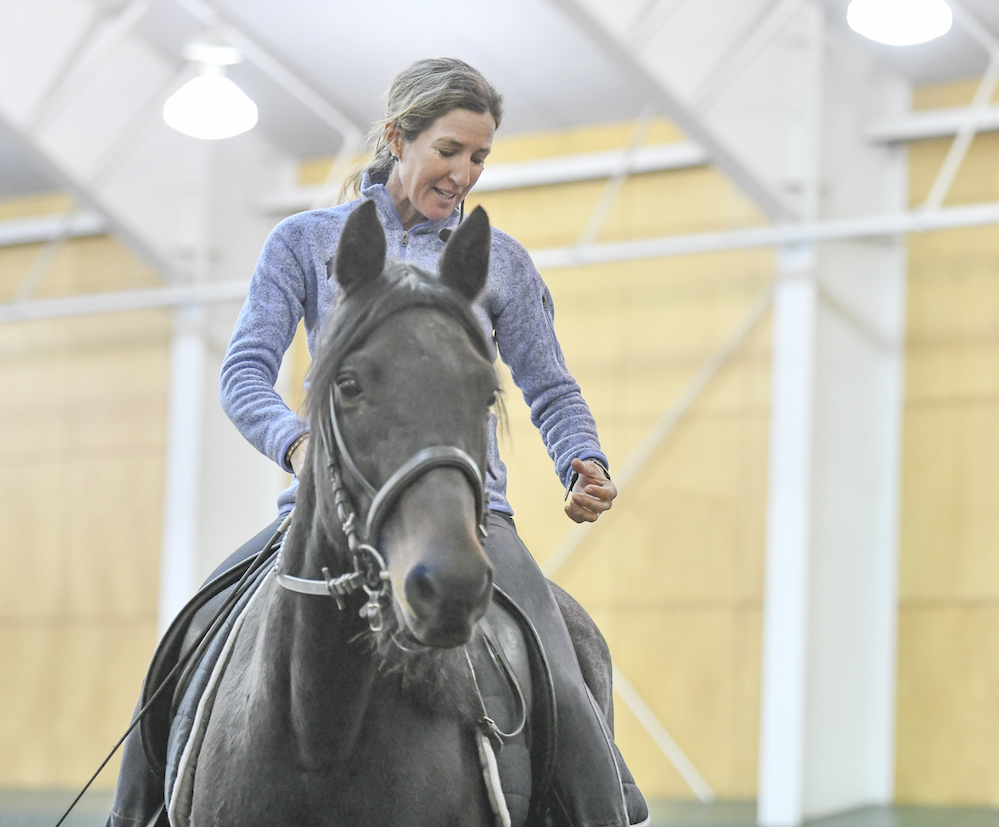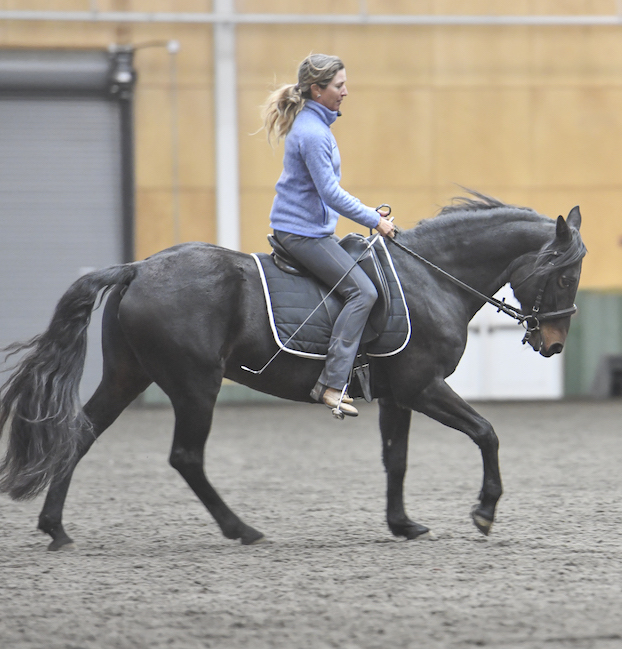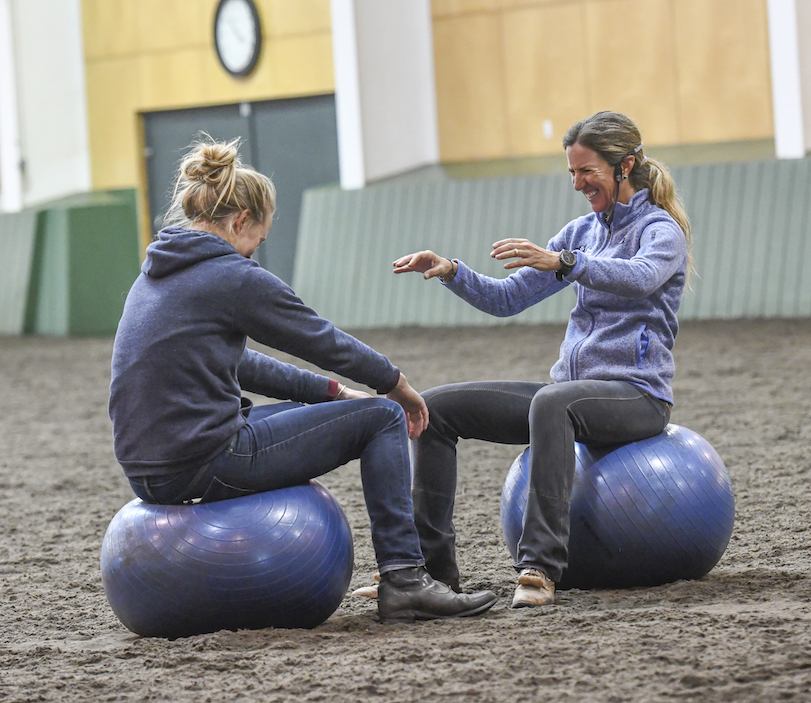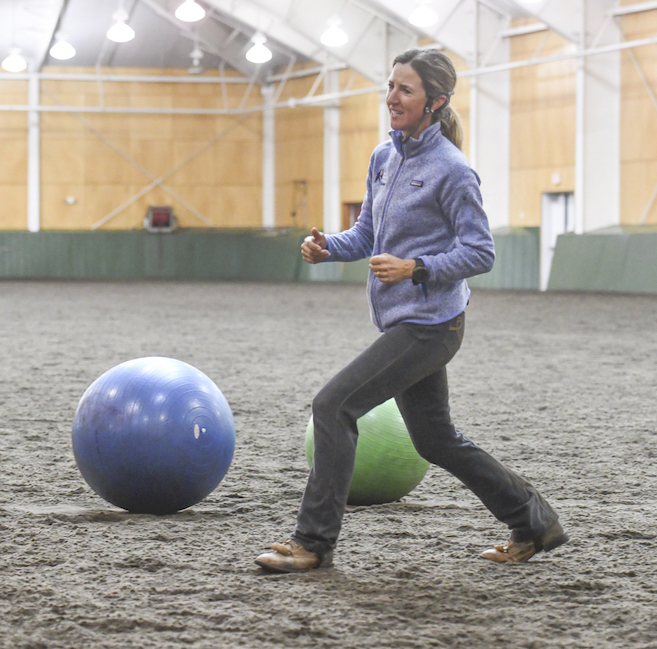Editor’s Note: 2018 & 2019 Best Horse Practices Summit presenter Katrin Silva grew up riding dressage in Germany before moving to the United States at age 19 to learn to ride Western. She’s been riding both disciplines for the last twenty years and is a regular columnist for Cayuse Communications, with a new book “Dressage for the Rest of Us.”
She lives in New Mexico where she works with dressage and Western clients. Visit her blog here.

Photo by Nina Fuller
Any knowledge that doesn’t lead to new questions quickly dies out: it fails to maintain the temperature required for sustaining life. In the most extreme cases, cases well known from ancient and modern history, it even poses a lethal threat to society. This is why I value that little phrase “I don’t know” so highly. It’s small, but it flies on mighty wings. Wislawa Szymborska
Katrin Silva writes:
At the opening of the Best Horse Practices Summit, director Maddy Butcher reminded me and many others of Szymborska’s wise words. “I don’t know” is indeed a powerful phrase. Ten years ago, I would not have called it that.
For most of my horse training career, I have suffered from impostor syndrome, the idea that everyone knows more than you and they will eventually figure out how incompetent you really are, at which point you will be expelled from the club you so desperately want to belong to.

Photo by Nina Fuller
I was always too dressage-y for the world of western horse shows, and too western for the dressage world. I didn’t fit in. Though my barn was full of happy clients and horses, I was still convinced I was less skilled than other trainers. I wasted time and energy pretending to be confident and pretending I did not suffer from a self-doubt that gnawed at me every day.
There’s a high price to pay for covering up how you really feel. The armor you wear is heavy. It weighs you down. It eventually cracks and breaks. I still enjoyed my work and never stopped loving horses, but began having panic attacks at shows and clinics.
I tried quitting horses, which felt worse than the panic attacks. I went back to working with horses, but anxiety persisted. What could I do? The solution was staring me right in the face.

Photo by Nina Fuller
I remember the day I decided to stop pretending. I remember the day a client asked me a question about why her young horse was more difficult to bend to the right than to the left, even though until very recently he had been hollow to the right. I knew how to deal with the issue, but didn’t know the answer to her question, the “why?” part. I was reaching for my armor – a casual version of “Oh, sometimes they just switch sides” and stopped short. I took a deep breath and answered with a plain, unapologetic “I don’t know.” After a brief pause, I added “But I will think about it. Ask me again when you come for your next lesson.”
The world didn’t end. My client seemed happy with the answer. I rode her horse, felt what she was talking about, and played with counter flexion and leg yields, which improved the horse’s body alignment.
When I got home, I pulled a couple off my old dressage books off the shelf. The next day, I called one of my mentors and we had a long conversation about one-sidedness and bend. The next week, I was able to give my client a much better answer than “They’re horses. They just do that.”
I was surprised to feel more competent, not less. I felt more authentic.
I began to realize it was ok to admit I didn’t know. No, it was more than ok. When I let myself be more vulnerable, paradoxically, it made me stronger. My students commented on my changed mindset and on how much more empowered they now felt. Our relationships changed to something more level and equitable

Photo by Nina Fuller
I still tend to armor up around people who criticize me. It’s still a struggle to stay real in environments I perceive as judgmental or hostile. But now I recognize what I’m trying to do.
I know that my training and teaching style will never appeal to those who simply want to be told what to do. Thankfully, I’ve discovered that my clients are looking for more than that: they are looking for guidance and shared experiences on their – no, our journey to better connections with our horses.
And guess what? I enjoy the journey a lot more without the heavy armor, without the panic attacks, without the anxiety of pretending to know everything.
Katrin, I absolutely love this piece! Thank you for sharing your vulnerability and hard-earned wisdom so eloquently. I can truly relate. My focused late-in-life study is worthy of sharing because discoveries led to tools and methodologies clearly earning equine approval…but I’m way behind in being educated enough to curry the curiosity of accomplished riders. Am working on it and grateful for the journey.
Dear Letitia, there is no “behind” or “ahead” on the path to good horse-human connections. It’s not a straight line. It’s a twisting, meandering trail system up the mountain. Being on it is all that really matters. Enjoy your journey, wherever you are at the moment. I hope to meet you soon!
Wonderful article Katrin. Putting your vulnerability out there is definitely scary but oh so freeing. Keep on being real!
Thank you, Julie. Being real is hard, but it feels better than the alternative.